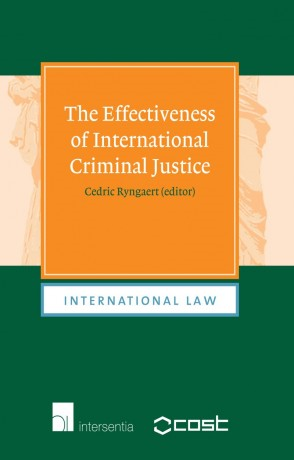
This edited volume ascertains the added value of international criminal tribunals in fighting impunity for crimes against international law and fostering political reconciliation in affected States. It aims to identify best practices which may inform the choice between the establishment of international criminal tribunals and recourse to other mechanisms, and which may render existing or future tribunals more effective institutions.
A first part analyzes how such tribunals, if the international community decides to establish them, could be effective institutions. Obviously, the tribunals' conduct of their own legal proceedings, within their mandate, may go a long way to make the tribunals effective mechanisms of post-conflict justice (e.g. prosecutor's choice of suspects, outreach, human rights protection, victims' participation…). It will be argued, however, that effectiveness will, in fact, for a large part depend on factors outside the tribunal's control, such as the presence of the right political parameters and the financial, logistical, and other support of States.
A second part of the volume contrasts international criminal justice with other judicial or political mechanisms aimed at dispensing justice or reconciling communities. An answer will be sought to the question whether national, as opposed to international justice avenues, amnesties for grave crimes, or restorative justice mechanisms (reparations, housing restitution) could sometimes be more effective than international criminal tribunals.